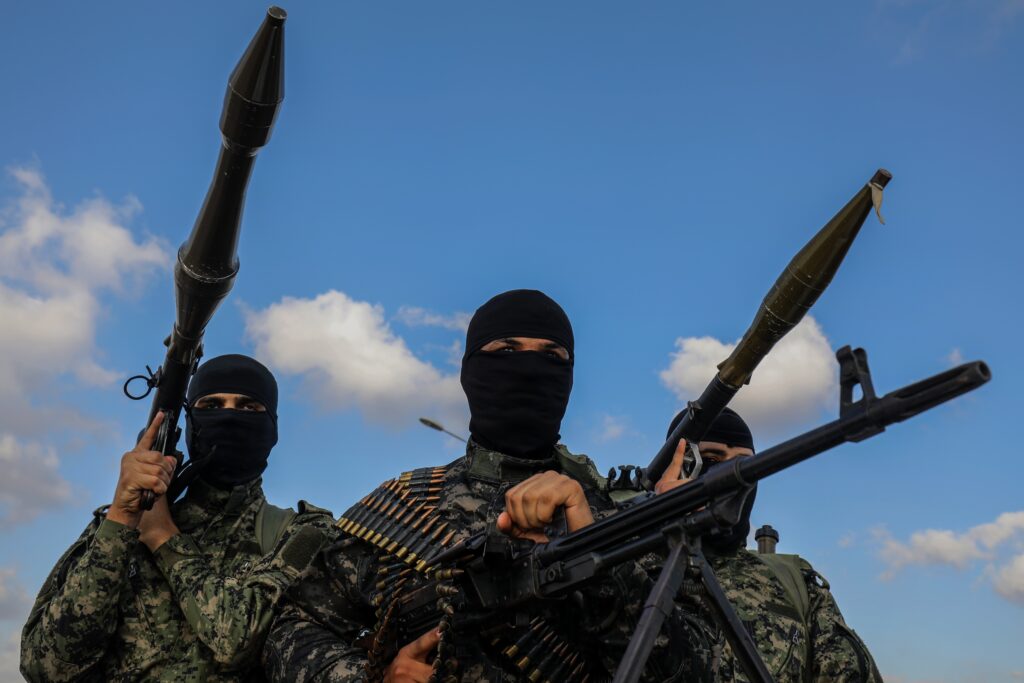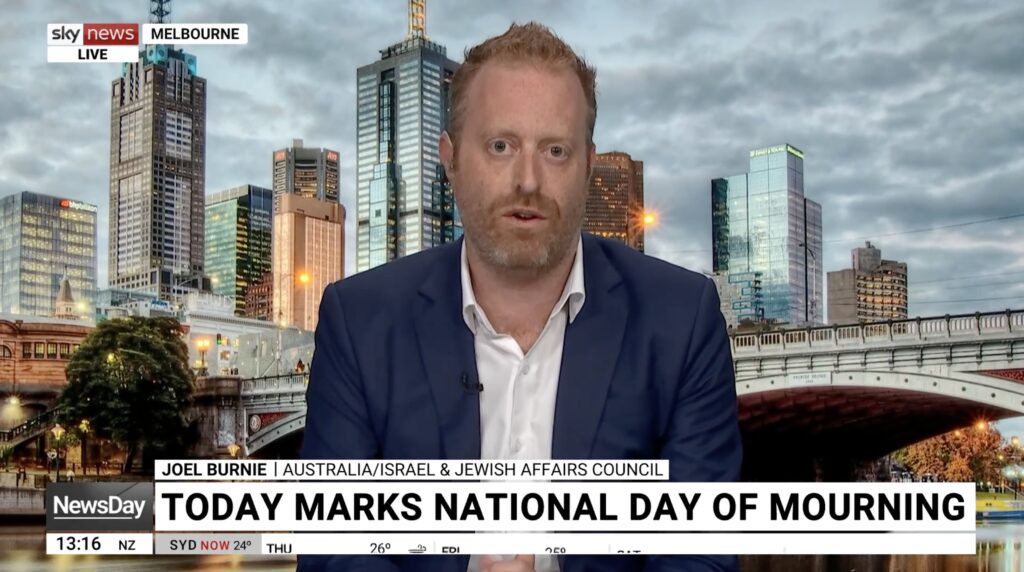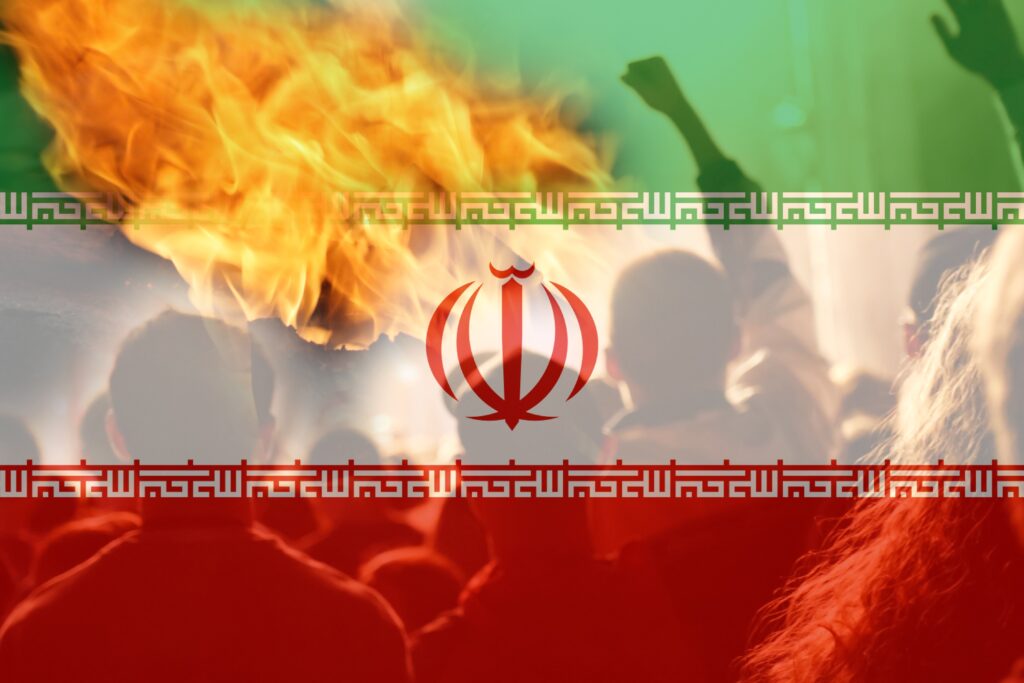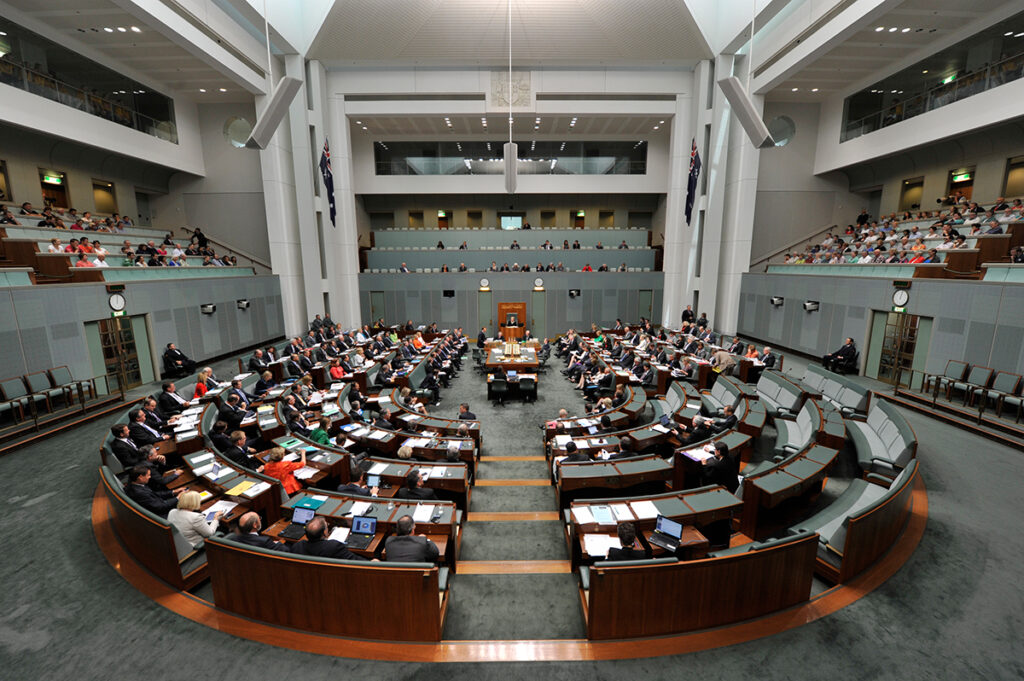UPDATES
Engaging Iran and Syria on Iraq? / Iranian vulnerabilities
March 6, 2007 | AIJAC staff
Update from AIJAC
March 6, 2007
Number 03/07 #02
Much is being made of the supposed “reversal” of US policy announced late last week, with US Secretary of State Rice agreeing to an international conference on Iraq including Iran and Syria, with whom the US has largely avoided direct negotiations until now. This Update is intended to provide background for understanding such claims.
David Pollock, a former senior US State Department official now at the Washington Institute for Near East Policy, says that there is less here than the media makes out. The door has always been open to talks at such multilateral forums, and broadly similar talks have occurred several time over recent years. He also has some important thoughts on what such discussions can accomplish, if anything, and makes it clear that the US troop surge in Iraq, is actually crucially relevant to the diplomatic efforts going on at the moment. For this insiders take, CLICK HERE.
Next up, distinguished Middle East scholar Fouad Ajami offers the first of two articles on Iranian vulnerabilities to outside pressure in the current nuclear standoff. Ajami argues that Iran is “a vulnerable and brittle society” and “There is no need to ‘engage’ them and bail them out as they stumble.” For Ajami’s explanation of Iran’s limited power and the proper response, CLICK HERE.
Finally, on the same subject is distinguished strategic analyst Edward Luttwak, who argues that, contrary to what is sometimes claimed, Iran was the big winner in the US wars against the Taliban in Afghanistan and Saddam in Iraq. However, he adds that Iran’s status as a multi-ethnic empire makes it vulnerable. He says that contrary to what many are arguing, there is an alternative to “détente” with Iran, based on “encouraging the forces of national liberation within Iran.” For Luttwak’s full argument, CLICK HERE.
Meeting with Iraq’s Neighbours: A Confidence-Building Measure, or Much More?
David Pollock
PolicyWatch #1206, March 2, 2007
Does this week’s surprise U.S. declaration of a new international conference on Iraq, scheduled for March 10, represent a major shift in U.S. policy or just a minor shuffle? Why is it happening now? And will it have any more of an impact than other recent international meetings on Iraq?
Shift or Shuffle?
Mid-level American, Syrian, and Iranian officials have sat together at an international meeting on Iraq as recently as September 2006 (albeit one focused on economic assistance and transparency issues). That meeting was in the framework of the International Compact for Iraq, hosted by the United Nations, which has held several such formal meetings in various locations since mid-2006. In addition, similar encounters have occurred at several Iraq donor conferences and related meetings in the past few years.
By far the most notable thing about any of these meetings is that they accomplished very little. And it is still far from clear whether the upcoming meeting will be much different. The success of such a conference typically depends on some combination of a rough international consensus, the exhaustion of the belligerent parties, and overwhelming outside force. Unfortunately, none of those factors is present in this case. Moreover, most experts agree that Iraq’s problems are primarily internal in nature. If Iran or Syria could somehow be convinced to reduce their troublemaking in Iraq, that would certainly be of service. But it would not solve Iraq’s problems — and the price of such an approach could prove prohibitive.
Nevertheless, if Iran and the United States have a serious discussion at the upcoming conference, it will be the first since 2003. And if the proposed follow-up meeting does, in fact, take place at the ministerial level, it will be the first such occasion (outside of UN plenary sessions) since November 2004. Then, former secretary of state Colin Powell and his Iranian counterpart were uncomfortably seated side by side (at the initiative of their Egyptian hosts) during an international conference on Iraq in Sharm al-Sheikh. In a relationship as fraught and barren as that of the United States and Iran, the first ministerial meeting in nearly three years — even in a multilateral setting — would be of symbolic significance.
A similar point can be made about Syria, though with an interesting twist. The most urgent problem facing Damascus is not its long-term ambitions in the Golan Heights or Lebanon, but the immediate fate of the UN investigation into its complicity in the assassination, almost exactly two years ago, of former Lebanese prime minister Rafiq Hariri. Though it seems unlikely that any decision on this matter will be made at the Baghdad conference, it will be interesting to watch for any Syrian maneuverings.
Why Now?
Declarations of this nature almost always require weeks of advance planning, bureaucratic vetting, and consultation with the governments involved. For example, after months of refusal, the seemingly abrupt U.S. decision in May 2006 to join European talks with Iran on the nuclear issue — pending suspension of Iran’s uranium enrichment program — was planned months beforehand.
The upcoming Iraq conference was almost certainly on the agenda during the recent high-level bilateral meetings of Saudi Arabia, Iran, Iraq, and Syria. As far back as December 7, Iraq’s Ministry of Foreign Affairs announced a plan to hold “two crucial conferences” on the situation. According to one press report at the time, “The more international of the two conferences will be held in Baghdad within the next few months. . . . Countries in the region will participate, as well as groups such as the Arab League and the United Nations.”
In ensuing weeks, even U.S. dismissals of diplomatic engagement with Iran and Syria left the door open for precisely this kind of international forum. In an interview published in Der Spiegel in mid-January, for instance, Secretary of State Condoleezza Rice repeated her Senate sound bite about such talks: “That’s not diplomacy — that’s extortion.”
Much less noticed was her preamble, which is (at least in retrospect) worth quoting at some length: “Well, let’s remember that there’s a lot of diplomacy going on. The Iraqis are running their own diplomacy, so they are going to talk to Iran, they’re going to talk to Syria. The region has what they are calling the Arab Initiative for Reconciliation, which is an Arab League initiative. That includes everyone. The International Compact which Iraq and the UN run together is an opportunity for all of Iraq’s neighbors to be there, including Iran and Syria. We had a meeting in New York. The Iranians were there. The Syrians were there. This was at the time of the United Nations General Assembly. So there are forums.”
Meanwhile, the United States was busy amassing what several senior officials have called the “leverage” to support a switch to diplomatic engagement on Iraq. In particular, they point to the first UN Security Council sanctions on Iran’s nuclear program, the movement of U.S. ships toward the Persian Gulf, and the imposition of serious unilateral sanctions on Iranian, Syrian, and Lebanese Hizballah financial institutions.
More important, however, is the one piece of leverage that has largely gone unspoken in this colloquy: the troop surge. Whatever the merits of sending more U.S. troops to Iraq instead of initiating a withdrawal, such a show of strength has clearly helped the U.S. administration decide that the time is ripe for opening a broad diplomatic dialogue on Iraq.
What Will Come of the Meeting?
While the Baghdad conference will by no means be the first international meeting on Iraq to bring U.S., Syrian, and Iranian diplomats together, it nevertheless has the potential to accomplish some useful things.
One simple yet significant way this conference differs from past ones is its location: Baghdad. If all goes according to plan, that in itself will be a useful symbol of greater deference to the Iraqi government’s sovereignty, and greater confidence in its ability to deliver at least a semblance of security in its own capital. It is worth noting, however, that Egypt’s Ministry of Foreign Affairs has already voiced misgivings about holding the conference in Baghdad rather than Cairo. Moreover, Jordan remains the only Arab country that maintains a full-fledged ambassador in the Iraqi capital.
The conference also offers an opportunity to transcend America’s obsessive preoccupation with Iran and Syria. What about Iraq’s other neighbors, the “forgotten” U.S. friends in Amman, Ankara, Riyadh, and Kuwait City? Jordan is already hosting nearly a million Iraqi refugees — proportionally about five times as many as Syria. Both countries have recently had to impose tough new restrictions on this massive inflow, which otherwise would show no sign of abating. Turkey continues to suffer from the crossborder terrorism of the Kurdistan Workers Party (PKK), which is protected by its Kurdish hosts in northern Iraq.
Saudi Arabia fears spillover effects from Iraq, including the possible agitation of its own Shiite majority living around key oil fields — which may explain why its pledges to aid the new Iraqi government remain unfulfilled. And Kuwait, for all its fabulous oil wealth, remains a net importer of cash from its struggling Iraqi neighbor — the legacy of Saddam-era reparations for the brutal occupation of Kuwait more than fifteen years ago. If the Baghdad conference can do anything at all about any of these issues — quite apart from dealing with Iran or Syria — that alone would be worth the price of admission.
David Pollock, a visiting fellow at The Washington Institute, previously served at the State Department as a member of the Policy Planning Staff and as a senior advisor for the broader Middle East.
————————————————————————
Maintaining Perspective
By Fouad Ajami
U.S. News & World Report, Posted 2/25/07
‘It’s too soon to tell,” The late Chinese leader Zhou Enlai is reported to have answered when asked for an evaluation of the significance of the French Revolution of 1789. This was nearly two centuries after the great upheaval of France. Revolutions are full of cunning, and the Iranian Revolution, now almost three decades old, has been no exception-cunning and ferocity side by side, the talk of a revolutionary millennium often concealing the skills of a leadership steeped in the ways of the bazaar. Shrewd players, these clerical leaders have found the cracks in the order of states around them. Brutal men, they rule a society of great historical sophistication. Given room to maneuver by a substantial windfall of oil income, they have made their nation a player of consequence in its neighborhood. Sly and opportunistic, Iran’s rulers have been able to pick and choose at a time, and in a place, of great volatility.
American power swept away two regimes that the Iranians dreaded-the Taliban in Afghanistan and Saddam Hussein in Iraq. True, America was now a land power on Iran’s flanks; the Iranians ducked at first, then gathered themselves as the American burden grew. Mixing bravado and bluff, and granting proxies in Palestine and Lebanon, the leaders of the Iranian theocracy appear to have succeeded in spreading the image of a mighty power able to have its way in the world. For some, that great arc stretching from the Persian Gulf to the Mediterranean is now a battleground between Pax Americana and the Persians. This belief is in part due to the abdication of the Arab states, their virtual absence from the contest of nations. There is bigotry in Arab lands, an animus on the part of the Sunni majority toward the political emancipation of the Arab Shiites. Arab diplomats and leaders shy away from Iraq-the pitiless jihadists are the only Arabs who come to Iraq-but the Iranians are present in force as pilgrims and traders and troublemakers and intelligence operatives.
“A cemetery of dreams.” Iran is a radical player in the world of states, to be sure, but we should not overstate its power. We should not fall for the Persian bluff. It is important that we do all we can to thwart Iran’s nuclear ambitions and to checkmate it in arenas that count, but we should always remember that this is a society swimming against the tide of history and confronting the limits of its capabilities. There is an Iranian role in Iraq, but it should not be exaggerated. It is not true that the Iraqi political class marches to the Iranian drummer. It is well known that Iraqi Prime Minister Nouri al-Maliki spent his years of exile in Syria and kept his distance from the Iranians. “Iraq is a cemetery of dreams,” a thoughtful Iraqi observed to me of his country. “Iranian dreams, no less than American dreams perhaps.” Iraqis are a tough breed, and the notion that they are eager to take their country into a Persian dominion is unconvincing. The Iranians dwell virtually alone in the House of Islam, separated by language and culture, marked by their Shiism.
Then there are the troubles that count-the disabilities at home. Iran’s deranged president, Mahmoud Ahmadinejad, came into power promising to put Iran’s oil wealth “on the dinner table.” But the Iranian economy is on the ropes. Hyperinflation, the drying up of international credit lines, and the astounding growth in energy consumption in Iran are bringing the country to the edge of crisis. The price of bread and meat and basic commodities has risen by as much as 25 percent. To tranquilize the realm, gasoline is subsidized well below its cost, and domestic consumption now accounts for a stunning 40 percent of Iran’s oil production. Dire predictions now hold that the country will be unable to export much oil a decade from now.
The true believers will proclaim that revolutionary purity trumps all, but worldly needs and affairs ultimately prevail. A society that spends $20 billion a year to subsidize the price of energy, electricity, and gasoline will in the end have to contend with the wrath and disappointment of its people. There is swagger in Iran, and there is menace, for its rulers are without scruples. Terrorism, for them, is always an option. But theirs is a vulnerable and brittle society. There is no need to “engage” them and bail them out as they stumble. The regime should be harassed, contained, and held to account. We may not have to wait two centuries to pronounce on the fate of this revolution. The swagger abroad and the rot at home: It is a trajectory we are all too familiar with by now.
————————————————————————
Persian Shrug
By EDWARD N. LUTTWAK
Wall Street Journal, February 27, 2007
Almost everyone in Washington agrees that Iran is the big winner in the Middle East power competition, and the U.S. the big loser. Instead of the irremediably hostile Taliban, Iran now has a friendly Afghan government on its eastern border. Rather than having to face Saddam Hussein’s regime, Iran has nothing to fear from an Iraqi government dominated by friends and obedient clients, many of whom lived as protected exiles in Iran for 20 years or more.
Having crushed Tehran’s enemies, the U.S. finds itself under attack by Iran’s rulers, who no longer have to worry about defending their own borders and can instead challenge American interests all over the Middle East, and as far away as Venezuela. At the same time, Iran continues to build facilities to process, gasify and enrich uranium, in spite of the International Atomic Energy Agency and solemn resolutions by the U.N. Security Council.
For some, including the Baker-Hamilton commission, all this is a compelling argument for negotiations. The hope is that Iran’s mighty rulers can be persuaded to stop arming and inciting the insurgents attacking American and British troops in Iraq, and perhaps help to stabilize the country, allowing the U.S. to withdraw less ignominiously. Now there is even talk of a détente with Iran, that being the standard diplomatic method to deal with a hostile country too powerful to be intimidated or defeated, and with which one must simply coexist on the best terms that can be had. In this case, it would mean coexistence with Tehran’s continued support for Hamas, Hezbollah, Islamic Jihad and three different Iraqi militias, as well as with Iran’s nuclear program.
Back in the 1970s, détente with the Soviet Union was criticized on the grounds that it actually propped up a regime in irreversible decline, and whose power could be confronted successfully. In the 1980s, the critics of that détente led by Ronald Reagan had their opportunity to challenge the Soviet Union, which did not outlast the decade.
There is every reason to believe that history is about to repeat itself. Iran does not resemble the Soviet Union in any other way and certainly does not have even a fraction of its military power, but it too is a multinational state in an age when nations are everywhere asserting their separate identities. In arguing that there is universal support for the nuclear program, regime spokesmen and even many Persians in exile speak of Iran as a unitary state inhabited by “Iranians” who are very nationalistic, even if they oppose the ayatollahs.
None of this remotely corresponds to Iran’s ethnic realities. Persians only account for half the population, and the other half includes many different nationalities increasingly resentful of Persian cultural imperialism.
Kurds account for some 7% of the population, and their nationalism is Kurdish and not Persian, having been much strengthened by the successful example of virtual Kurdish independence in Iraq. Their demands for autonomy have become sufficiently forceful to start an insurgency. The same is true of two smaller nationalities that are even more violently disaffected with frequent fire-fights and bombings: the Arabs and the Baluch, which account for another 3% of the population. But the largest of Iran’s subject nationalities are the Azeris. While many have been assimilated, at least 20 million still speak an entirely different Turkic language, and increasingly form the core of a united Azeri nation that extends beyond western Iran to include the former Soviet republic of Azerbaijan.
The religious extremism of Iran’s regime creates its own divisions. The bloody persecution of the Bahais, the new persecution of the Sufis and the institutional subjection of Christians, Jews and Zoroastrians have attracted greater attention, but the ill-treatment of the 9% of the population that is Sunni is more important politically: In Tehran where more than a million Sunnis live, there is no Sunni mosque as there is in Rome, Tel Aviv and Washington, D.C.
If Iran’s economy were more successful, ethnic divisions and even religious resentments would matter less. As it is, with at least 20% unemployment and an annual inflation rate of some 30%, Iran’s economy is scarcely a unifying force, especially because most of its minorities are distinctly poorer than the dominant Persians.
Viewed from the inside, Iran is hardly the formidable power that some see on the outside. The natural outcome of increasing popular opposition to extremist rulers, of widening ethnic divisions and bitter Sunni resentment of Shia oppression is a breakup. Certainly there is no reason why Iran should be the only multinational state to resist the nationalist separatism that destroyed the Soviet Union and Yugoslavia, divided Belgium in all but name and decentralized Spain and even the United Kingdom, along with other states large and small.
Once again, there is a better alternative to détente with a repulsive regime, and that is to be true to the Wilsonian tradition of American foreign policy by encouraging the forces of national liberation within Iran.
Mr. Luttwak, a senior fellow at the Center for Strategic and International Studies, is author of “Strategy: The Logic of War and Peace” (Belknap, 2002).





